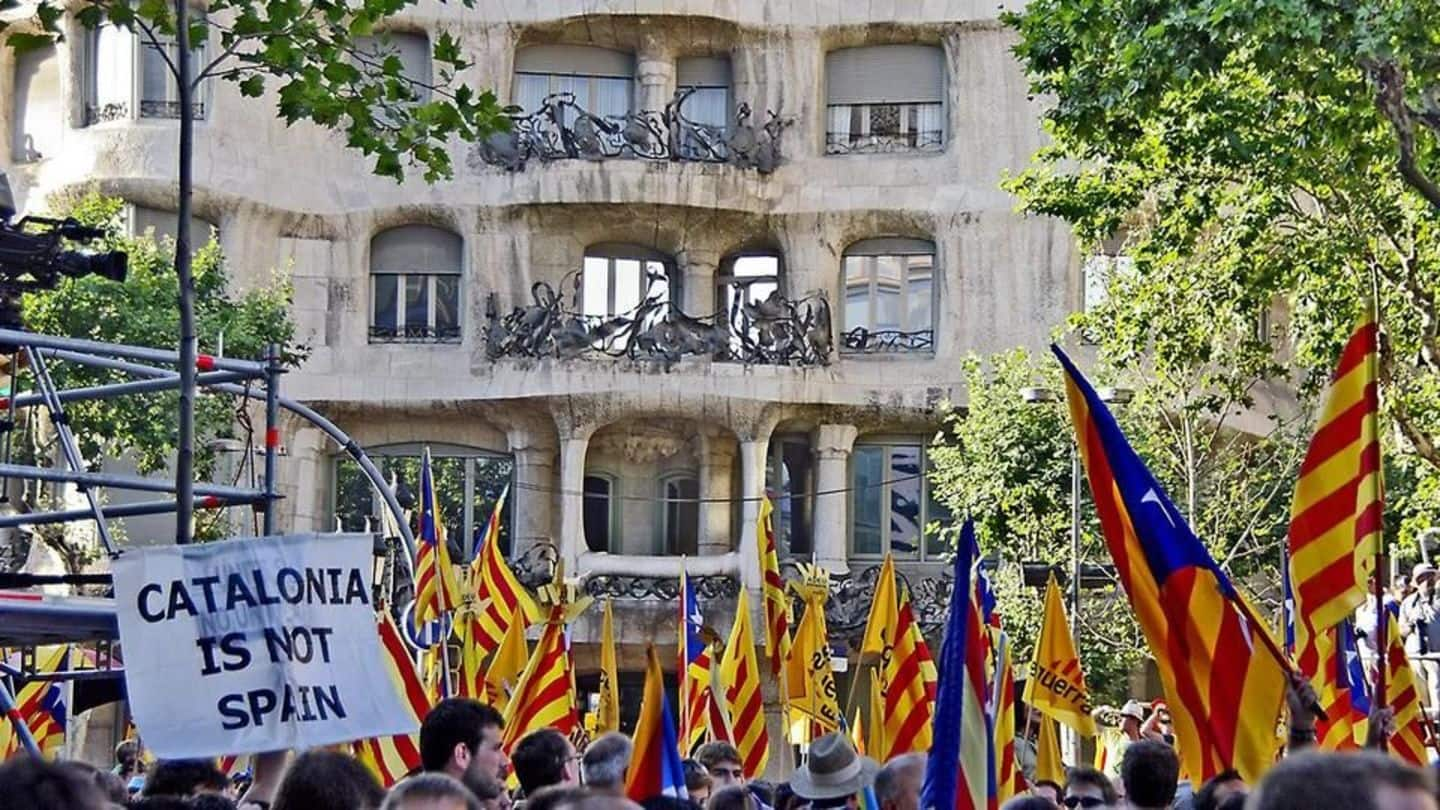
Spain: Will Catalonia become independent soon?
What's the story
Catalonia's people overwhelmingly voted for independence from Spain in a recently conducted referendum. Giving his first interview after the referendum, Catalonia's president Carles Puigdemont has stated that they may declare independence "at the end of this week or the beginning of the next." Meanwhile, Madrid is stressing on the fact that the referendum was illegal. What could happen? Read on to know.
Information
Where is Catalonia?
Catalonia is an area located in the north-east of Spain and is considered to be among its richest and most industrialized areas. With its capital in Barcelona, Catalonia has a distinct identity and language from Spain.
Why?
Why does Catalonia want independence from Spain?
The Spanish Supreme Court in 2010 reversed parts of a 2006 statute granting autonomy to Catalonia, angering its people. Independence supporters maintain that they have repeatedly been subjected to periodic campaigns to "make them more Spanish." Moreover, the 2008 economic crisis affected the region badly, along with the rest of Spain and Europe, thus strengthening arguments for independence.
Referendum
Catalan referendum: What has happened so far?
Catalonia recently organized a referendum seeking to find out whether its citizens wish to be independent or remain part of Spain. Violence erupted on voting day as police forces deployed by Madrid tried to stop people from voting; 900 voters and 33 policemen were reportedly injured. Huge anti-police protests have erupted in Catalonia afterwards, bringing major centres such as Barcelona to a standstill.
Data
What do the results indicate?
According to figures released by Catalan authorities, out of 2.2 million people who voted in the referendum, 90% backed independence. However, the voter turnout was as low as 42% and could possibly weaken Puigdemont's arguments for Catalan independence.
Speech
Spanish king slams Catalan leaders in address to the nation
In a televised address, Spanish king Felipe VI stated that the organizers of the referendum "disrespected the powers of the state" and "broke democratic principles." He warned that a split could negatively impact Catalonia's as well as Spain's economy. The king also expressed hope that Spain will "overcome difficult times." However, his speech did not make any reference to police violence against the voters.
Analysis
Should Spain be looking for compromise instead of criticism?
The Spanish government is staunchly opposed to Catalan independence and has used violent means to suppress it. Further, King Felipe sent a harshly critical message to Catalans and refused to acknowledge the violence that had been perpetrated against them. This hasn't helped at all. Rather, Madrid's stance seems to be aggravating Catalonia further and can effectively rule out possibilities for a compromise.